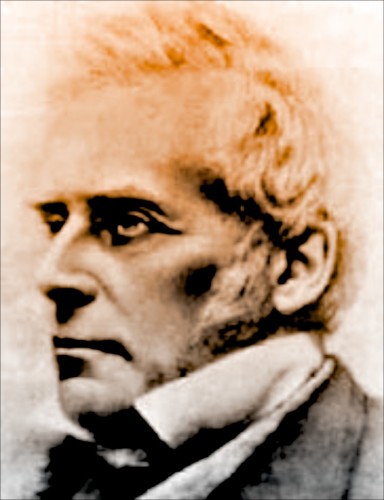J N Darby – Sect or One Body
In a brief article entitled ‘What is a Sect’ – Collected Writings Volume 14 (Ecclesiastical 3) p. 362, John Nelson Darby distinguishes those who gather to the Lord’s Name in the light of the One Body, from those who are members of a sect, or church, or ecclesiastical corporation. The latter is based on held opinions.
J N Darby – Sect or One Body
The Greek word for ‘sect’ is αἵρεσις/hairesis/Strong 139. Strong says that the word signifies a strong, distinctive opinion and was used in the New Testament to differentiate parties (sects) in Judaism. The term stresses the personal aspect of choice – Sadducees and Pharisees were such by choice (See Acts 23:8). In Acts 24:14, Christianity was described by some as a Jewish sect. Of course, Paul did not own this.
Darby defines the word as signifying adherence to a doctrine or system of philosophy or religion. It is used as describe Christians departing from the truth – ‘There shall be false teachers among you, who privily shall bring in damnable heresies’ (2 Peter 2:1). ‘There must also be sects among you, that the approved may become manifest among you’ (1 Cor 11:19 DBY). The Catholics assumed what they held to be ‘universal’, and censured all other believers by branding them as ‘sects’.
The Unity of the Body
The unity of the Church of Christ is seen in the Lord’s prayer in John 17 – ‘that they all may be one in us: that the world may believe that thou hast sent me’ (v 21). When the Holy Spirit came (see Acts 2; 1 Cor. 12:13), Christians became one in thought, word, and deed. And in this there was testimony to the unity. Satan spoilt that. In the scriptures the Holy Spirit compares the church on the earth to the human body, Christ being the Head (see Col 1:18). So if ‘one member suffer, all the members suffer with it’. (1 Cor 12:13). We members of Christ’s body.
Divisive Sects
When Christians unite outside this of unity, around a particular opinion, their unity is not founded on the principle of the unity of the body. They form an ecclesiastical corporation, and recognise each other as members of that corporation. This constitutes a sect. The communion service becomes an expression of the union of a church’s members. When a corporation of Christians assumes a right to admit members to it, it forms a unity opposed to the unity of the body of Christ. Being a member of a such a church is not according to scripture.
Of course, many pious Christians find themselves ignorantly in sectarian positions: they have never truly apprehended the unity of the body. They believe they are in that position through the will of God. But, in fact they are in a sect, a denial of the unity of the body of Christ (see 1 Cor 10:17).
Calling on the Lord’s Name
Darby said that his desire was to recognise all Christians as members of the body of Christ, and from an enlarged heart, ‘receive them, from an enlarged heart, even to the Supper, supposing that they are walking in holiness and truth, calling upon the name of the Lord out of a pure heart’ (see 2 Tim 2:19-22). He would join with other brethren to take the Lord’s supper as members of nothing else but of the body of Christ, not as members of a church or sect. Unfortunately though, he could not gather with all the children of God, because not all were walking according to the principle of this unity of the body of Christ. They were sectarian.
Although the practical difficulties may appear great by reason of the state of the Church of God, the principle is very simple. However, Christ is sufficient for all. If we are content to be little in the eyes of men, things will not be so difficult. We can cite Matt 18:20 – ‘For where two or three are gathered together in my name, there am I in the midst of them’. This is a precious encouragement in these sad times of dispersion. We are told ‘Youthful lusts flee, and pursue righteousness, faith, love, peace, with those that call upon the Lord out of a pure heart’ ( 2 Tim 2:22 DBY). This directs us in the path of the Lord’s will, despite the confusion around us.
Based on J N Darby’s paper ‘What is a Sect’ – Collected Writings Volume 14 (Ecclesiastical 3) p. 362.
Summary by Sosthanes
May 2017


